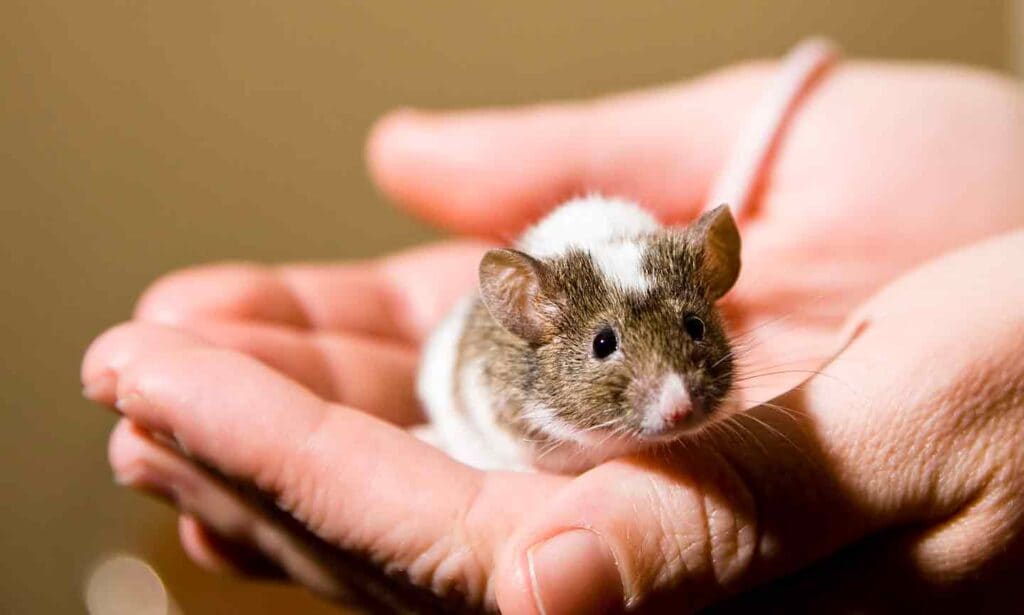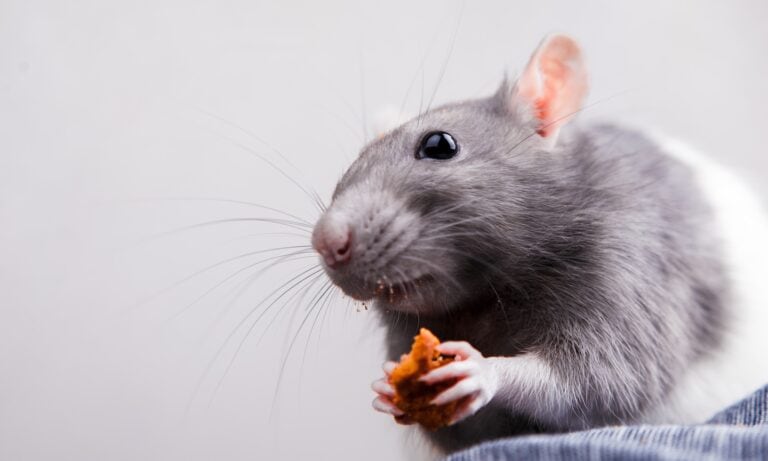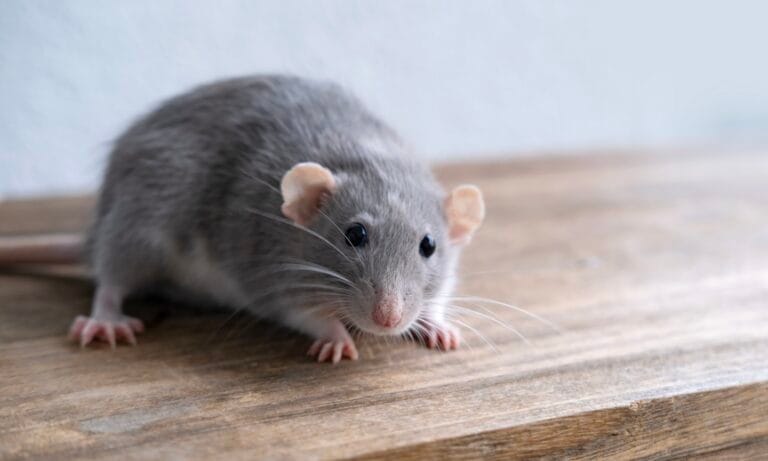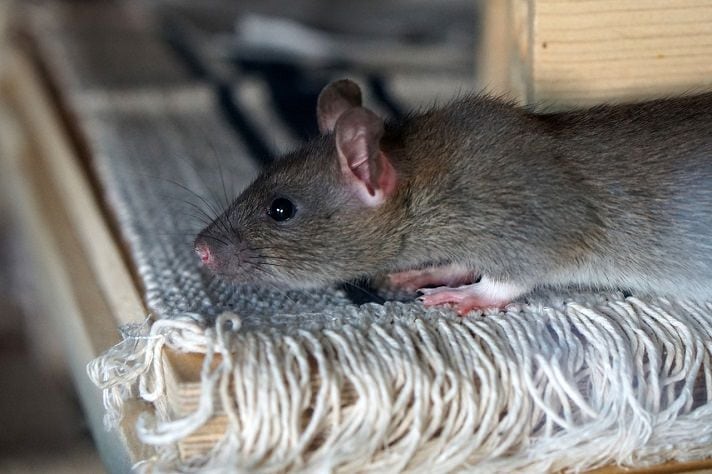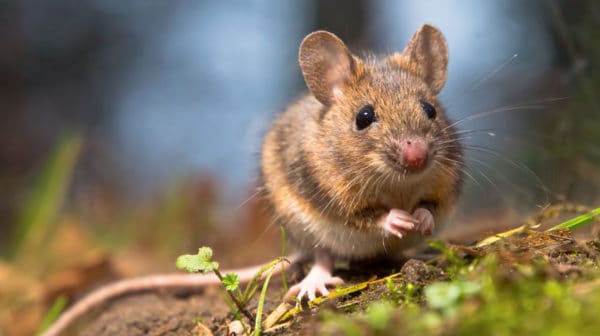Mice make good first pets for children because they’re a great introduction to responsibility and gentle interactions. However, it’s important to think about how long mice live; their lifespan is quite a bit shorter than other small pets such as chinchillas.
So how long do pet mice live? Most pet mice live only 1 to 2 years, with a rare few reaching 5 years, according to Dr. Marcie Logsdon, an associate professor of exotics and wildlife at Washington State University's College of Veterinary Medicine.
In This Guide:
Life Cycle of Mice
While there are many species of wild mice, all those adorable companions you see at the pet store are domesticated house mice (Mus musculus), says exotic companion veterinarian Sandra Mitchell, DVM, DABVP. They come in a wide variety of colors, but that's where their differences seem to end.
Pet mice generally follow the same life cycle, are roughly the same size, and need similar care.
Pup
Born hairless and blind, baby mice come in litters of 10 to 12. Completely dependent on their mom's milk for food and warmth, baby mice develop quickly:
- Day 2: Ears begin as small nubs against their heads
- Day 3: Fine hair appears, and pinkies’ ears begin to lift
- Day 5: Ears are fully formed and set back
- Day 7: Pups are covered in soft fur
- Day 10: A full coat develops
- Day 11: Teeth erupt as their eyes begin opening
- Day 12: Pups can nibble on solid food
- Day 14: With developed motor skills, pups go out of the nest and explore their surroundings
- Day 21: Pups are usually fully weaned from mom’s milk at about this time
Adolescence
Mice enter adolescence around 3 weeks old (21 days), but pet stores and breeders typically wait until about 5 weeks of age to sell them. This is their most energetic period of life, and their appetites increase to fuel this extra activity. Mice are considered adolescents until they become sexually mature at about 6 weeks.
Some recommended toys for curious young mice include:
Adult
Male and female mice reach adulthood at around 6 weeks old, which is when they become sexually mature.
If you plan to house pet mice together and want to avoid unwanted litters, Dr. Logsdon recommends neutering or spaying your pet mice. It not only prevents breeding but can also extend a female rat’s lifespan by preventing certain types of cancers. Neutering also lowers aggression between males, she says.
Senior
At around 11 months old, mice enter their senior period and breeding becomes less likely. Their ability to learn and spatial memory may decline, though some mice remain sharp well into old age.
Regardless, senior mice still enjoy social interaction, playtime, and regular meals.
What’s the Average Lifespan of a Domestic Mouse?
Pet mice of all colors and genders typically live for about two years.
While this may seem short, Dr. Mitchell says it’s a lot longer than their wild house mouse counterparts who face survival hardships like food shortages, disease, and predators.
How Long Do Wild Mice Live?
Wild house mice may only live for five to six months. “In theory, a wild house mouse could live for a year,” Dr. Logsdon says. “In reality, mice are pretty low on the food chain and there are lots of hazards to mice in the wild.”
However, there are many species of wild mice beyond the house mouse. Some, while not domesticated, are cared for by humans in zoos.
For instance, the endangered Pacific pocket mouse stands out for its long lifespan in human care. Despite his tiny size (weighing about as much as three pennies), Pat the Pacific pocket mouse lived at the San Diego Zoo and held the record for the longest-lived mouse. He was 9 years, 11 months, and 19 days old when he died in 2023.
How To Keep Your Mouse Healthy
Schedule Regular Vet Checkups
Dr. Logsdon and Dr. Mitchell recommend annual wellness checkups for pet mice, starting when they’re first purchased. They may need to see your vet more often if any medical or behavioral concerns develop.
Feed a Balanced Diet
Commercial pellet food is recommended over mixes so that your mouse gets all the necessary nutrients in every bite. While cereal food options for mice are available, Dr. Logsdon says mice might simply pick out their favorites, leading to an unbalanced diet.
“There are a lot of really good commercial diets out there for pet mice,” Dr. Logsdon says. Some top-rated foods for mice include:
Choose a Right-Sized Enclosure
Mice may be small, but they still need some space. Small enclosures without good ventilation can lead to several health problems, including:
- Increased risk of respiratory illness
- More frequent cleaning due to ammonia buildup
- Limited space for exercise and enrichment
At a minimum, an enclosure for 1 to 3 mice should be 18 inches long by 18 inches wide by 10 inches high. Some examples include:
Tips for Caring for Mice
Getting your female mouse spayed is the best way to increase her lifespan. “We completely understand that most people are not going to be game to take their mouse in to get spayed,” Dr. Logsdon admits, “but that can definitely decrease the chances of things like mammary tumors.”
Dr. Mitchell and Dr. Logsdon offer the following tips to help care for your pet mouse:
- Begin care with an exotic animal vet familiar with mice soon after bringing your new pet home.
- Wood enclosures can absorb urine, and your mouse might chew through them. A well-ventilated metal enclosure with bars narrow enough to prevent escapes may be a better choice.
- Provide deep bedding, such as Carefresh® Natural, for burrowing. Small pets like mice rely on their bedding for warmth, Dr. Logsdon says.
- A mouse’s front teeth grow continuously, and gnawing helps keep them at a healthy length. Wood and mineral chews, such as apple snack sticks and lava bites, are great options.
- Give a balanced pellet mouse food and supplement with small treats like fruits, veggies, or commercial mouse treats, such as these freeze-dried treats. Mice can be trained to do a lot, and using treats as a reward is wonderful, Dr. Logsdon says. Give treats in moderation to avoid health problems.
- Mice are smart and playful. Offer safe enrichment items, such as an exercise wheel, tunnels, and hideout structures to keep them busy. Rotate toys such as these balls regularly to prevent boredom.
- Mice are social creatures. Consider housing same-sex pairs or small groups together. Neutering males can lower aggression between males, Dr. Mitchell says.
While mice may have a shorter lifespan compared to other popular pets, their affectionate and playful nature makes them rewarding companions, particularly for children. Learn more about teaching children how to respectfully interact with their pets.
Expert input provided by Dr. Marcie Logsdon, an associate professor of exotics and wildlife at Washington State University's College of Veterinary Medicine, and exotic companion veterinarian Sandra Mitchell, DVM, DABVP.
Like this story? Check out more of our favorite reads:
Share:
